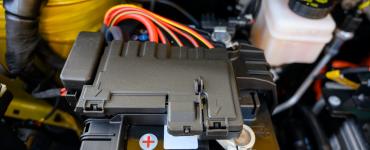Recognizing the Signs of a Dying Car Battery
Key Takeaways
| Point | Details |
|---|---|
| Early Warning Signs | Understand common early symptoms of a failing battery. |
| Impact on Vehicle Performance | How a dying battery affects overall vehicle functionality. |
| Diagnosis and Testing | Simple ways to diagnose a weakening battery. |
| Preventative Measures | Strategies to extend battery life and health. |
| Professional Services | Importance of expert diagnosis and replacement services. |
Early Warning Signs of a Failing Battery
A car battery is the lifeline of your vehicle, playing a crucial role in its overall functionality. Recognizing the signs of a dying battery can save you from unexpected breakdowns and costly repairs. Some key symptoms include:
- Slow Engine Crank: When you attempt to start the vehicle, the cranking of the engine is sluggish and takes longer than usual to start.
- Check Engine Light: The check engine light sometimes appears when your battery power is weak.
- Low Battery Fluid Level: Most batteries have a transparent part of the casing where you can check the fluid level.
- Swelling or Bloating Battery Case: A battery case that appears swollen or bloated is a sign of excessive heat affecting the battery.
- Battery Age: Car batteries typically last between 3-5 years. If yours is older, it might be nearing its end.
Impact on Vehicle Performance

A weakening battery doesn’t just risk failing to start the car; it also affects other aspects of vehicle performance:
- Electrical Component Functionality: Dimming headlights, malfunctioning infotainment systems, and erratic dashboard lights can all be signs of battery issues.
- Overall Vehicle Reliability: A dying battery can lead to increased strain on other vehicle components, potentially leading to more significant issues.
Signs of a dying battery: How to Diagnose a Dying Battery
Before concluding that your battery is the issue, consider simple diagnostic steps:
- Visual Inspection: Check for signs of corrosion on the terminals and ensure the connections are tight and clean.
- Voltage Check: A healthy car battery should have a voltage between 12.4 and 12.7 volts. Anything lower may indicate a problem.
For detailed guidance on testing, consider reading our comprehensive guide, “How to Test a Car Battery: A Detailed Guide”.

Preventative Measures for Battery Health
Maintaining your battery can significantly extend its life and performance:
- Regular Maintenance: Keep the battery and its connections clean to prevent build-up.
- Avoid Short Rides: Short rides prevent the battery from fully charging.
- Check the Charging System: Ensure your vehicle’s charging system provides enough power to keep the battery at an optimal level.
Discover more about preserving your battery’s health in our article, “Extending Battery Lifespan: Maximizing Your Car Battery’s Health and Longevity”.
Professional Diagnosis and Replacement
If you’re experiencing symptoms of a failing battery, it’s crucial to seek professional help. A certified mechanic can provide a thorough diagnosis and recommend the best course of action. 5th Gear Automotive offers expert services in battery inspection and replacement, ensuring your vehicle stays reliable and efficient.




